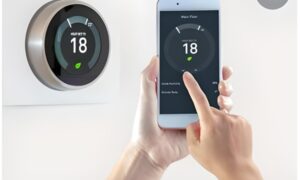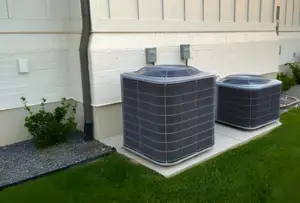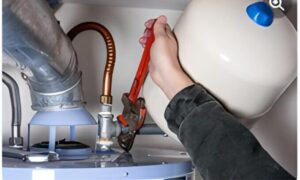Air filters play a crucial role in maintaining the quality of the air we breathe inside our homes and workplaces. It is responsible for trapping particles such as dust, pollen, and pet dander, ensuring that the air we inhale is clean and free of allergens and other harmful pollutants.
That’s why air filter care and maintenance are vital to keeping your HVAC system running efficiently and effectively.
Neglecting your air filters can result in reduced air flow, increased energy consumption, and even system failure.
We’ll go over the importance of air filter care and the steps you can take to ensure that your HVAC system continues to provide you with clean, fresh air.
Table of Contents
Why Changing The Air conditioner Filter Is important?
Changing the air conditioner filter is important for several reasons:
Improved air quality: A dirty air filter restricts the flow of air and can cause a buildup of allergens, dust, and other pollutants in your home. Replacing the air filter regularly ensures that the air you and your family breathe is clean and free of harmful particles.
Energy efficiency: A clogged air filter makes your air conditioner work harder, which can lead to increased energy consumption and higher utility bills. Replacing the air filter regularly can help your air conditioner run more efficiently, reducing energy usage and saving you money.
Longevity: Dirty air filters can cause increased strain on your air conditioner’s system, leading to increased wear and tear and potentially reducing its lifespan. Regular filter replacement helps keep your air conditioner running smoothly and can extend its lifespan.
Better cooling performance: When the air filter is dirty, it restricts the flow of air and can reduce the effectiveness of your air conditioner. Replacing the air filter ensures that your air conditioner is functioning at its best, providing better cooling and improved comfort.
So, in short, regularly changing the air conditioner filter is a simple, yet effective way to improve air quality, increase energy efficiency, extend the lifespan of your air conditioner, and ensure optimal cooling performance.
What happens if you don’t clean an AC filter?
If you don’t clean or replace a dirty air conditioner filter, several negative consequences can occur:
Reduced airflow: A clogged air filter restricts the flow of air, reducing the effectiveness of your air conditioner and making it harder for it to cool your home.
Increased energy consumption: When the air filter is dirty, it makes your air conditioner work harder, leading to increased energy usage and higher utility bills.
System failure: Dirty air filters can cause increased strain on your air conditioner’s system, leading to increased wear and tear and potentially causing system failure.
Poor indoor air quality: A dirty air filter can cause a buildup of allergens, dust, and other pollutants in your home, reducing the quality of the air you and your family breathe.
Higher repair costs: Neglecting to clean or replace your air conditioner filter can lead to increased wear and tear, increasing the likelihood of expensive repairs.
That is why, regular cleaning or replacing your air conditioner filter is an important step in maintaining the health and efficiency of your HVAC system, and helps ensure that you and your family enjoy clean, fresh air.
How often should you replace a central A/C unit’s air filter?
The frequency at which you should replace a central A/C unit’s air filter varies depending on several factors, including the environment in which it operates, the type of filter being used, and the number of people and pets in the household.
As a general rule, air filters should be replaced every 1 to 3 months. However, in households with pets or those located in particularly dusty environments, filters may need to be replaced more frequently.
It’s always best to check the manufacturer’s recommendations and to inspect the air filter monthly for any visible signs of dirt and debris buildup. If the filter appears dirty, it’s time to replace it with a new one.
Is it OK to run HVAC without a filter and why do they need filters?
It is not recommended to run your HVAC system without a filter. Filters serve an important function in maintaining the health and efficiency of your heating and cooling system and the air quality in your home.
Protection of HVAC system: The filter helps to protect the delicate components of your HVAC system by preventing dust, debris, and other particles from entering and clogging the system.
Improved Indoor Air Quality: Filters remove pollutants, allergens, and other harmful particles from the air, improving the air quality in your home and reducing the risk of respiratory problems and allergies.
Increased Energy Efficiency: A clean air filter allows air to flow freely through your HVAC system, reducing the strain on your system and improving energy efficiency, potentially leading to lower energy bills.
Extended System Life: By preventing dust and debris from entering your HVAC system, a filter helps to extend the life of your system, reducing the need for repairs and maintenance.
What are the features to look for when buying air filters?
Air filters have a range of features that determine their effectiveness at removing pollutants and improving indoor air quality. Here are some of the key features to look for when choosing an air filter:
MERV Rating: MERV (Minimum Efficiency Reporting Value) is a rating system that measures a filter’s ability to remove particles from the air. The higher the MERV rating, the more effective the filter is at removing pollutants.
Filtration Efficiency: This is the percentage of particles that a filter is able to remove from the air. Higher filtration efficiency generally means that a filter is better at removing pollutants.
Material: The material of the filter, such as fiberglass, pleated paper, HEPA, electrostatic, or activated carbon, can impact the filter’s effectiveness at removing different types of pollutants.
Size and Shape: Air filters come in different sizes and shapes, so it is important to choose a filter that fits your furnace properly to ensure optimal performance.
Durability: The durability of the filter, such as how often it needs to be replaced or how easily it can be cleaned, is an important factor to consider when choosing an air filter.
Price: Air filters come at different price points, so it is important to consider the cost of the filter, the frequency of replacement, and the benefits to determine the best value for your needs.
Brand and Warranty: Consider the reputation of the brand and the warranty offered when choosing an air filter. A good warranty can provide peace of mind and protect your investment.
However, the best air filter for you will depend on your individual needs and preferences. Consider the features of different air filters and choose one that best meets your needs and budget.
Are the expensive filters actually worth it?
Whether an expensive air filter is worth the cost depends on several factors, including your individual needs and preferences, the type of filter, and the size of your furnace. Here are some of the things to consider:
Health needs: If you or a family member have allergies, asthma, or other respiratory problems, a more expensive air filter with a higher filtration efficiency may be worth the cost to improve indoor air quality.
Type of filter: Different types of filters, such as HEPA filters, activated carbon filters, and electrostatic filters, are designed to remove different types of pollutants and may be more effective at improving indoor air quality.
Frequency of replacement: More expensive filters may last longer, reducing the frequency of replacements and potentially saving you money in the long run.
Energy efficiency: Some high-efficiency air filters can help your furnace run more efficiently, reducing energy usage and potentially saving you money on your energy bills.
Ultimately, the best way to determine whether an expensive air filter is worth the cost is to weigh the benefits and costs and consider your individual needs and preferences.
If you are concerned about indoor air quality, it may be worth investing in a more expensive filter to ensure that you and your family are breathing clean air.
What is the best air filter for my furnace?
The best air filter for a furnace will depend on several factors, including the size, the type of furnace, and your individual needs and preferences.
Here are some of the most common types of air filters and their benefits:
Fiberglass filters: These are the most basic type of air filter and are relatively cheap. They are an adequate choice for those who don’t have allergies or pets and who don’t mind changing the filter frequently.
Pleated filters: These filters have a higher filtration efficiency compared to fibreglass filters. They trap more airborne particles, making them a good option for those who suffer from allergies or asthma.
HEPA filters: These filters are designed to trap a high percentage of very small particles, including allergens, mold spores, and pet dander.
They are the best choice for those who have severe allergies or asthma and who want to ensure the air they breathe is as clean as possible.
Electrostatic filters: These filters use an electrical charge to attract and trap particles, making them highly efficient at removing airborne pollutants.
They are reusable and washable, making them a good choice for those who are environmentally conscious.
Activated carbon filters: These filters are designed to remove odours and volatile organic compounds from the air.
They are a good choice for those who are concerned about indoor air quality and who want to reduce the levels of harmful chemicals and fumes in their home.









